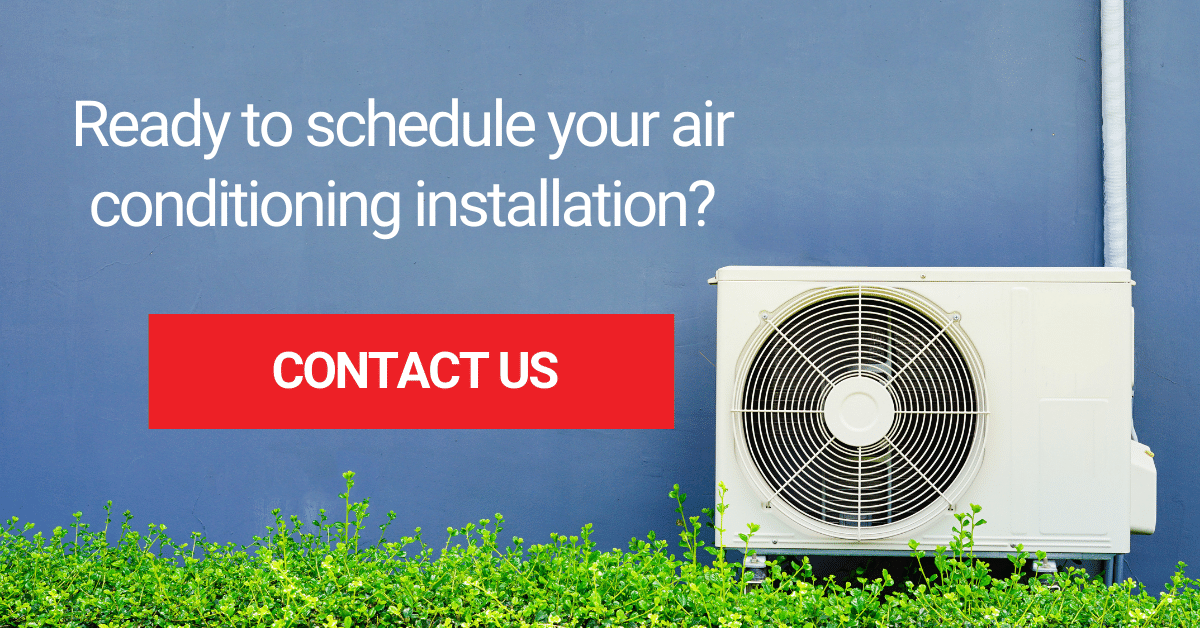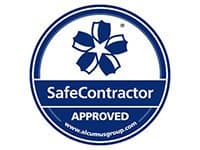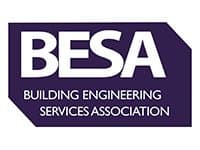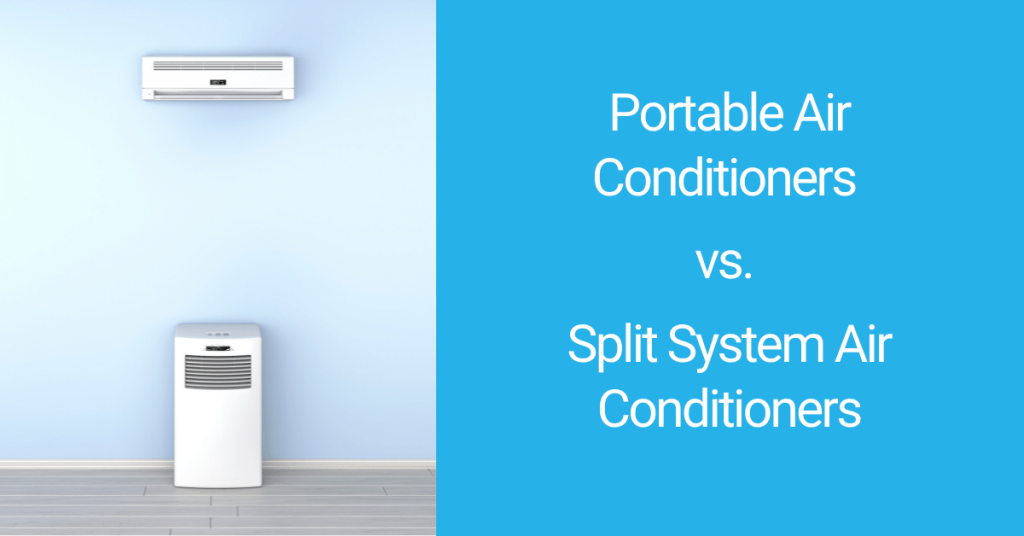
Air conditioning is something many businesses need as default due to the nature of the work they do. Others are finding that with hotter summers, there’s the need for a good air conditioning system in place. Two of the big categories to consider are portable air conditioners versus split system air conditioning. But what are the pros and cons that help you decide which would be best?
Portable Air Conditioners
A portable air conditioner is quite simply an air conditioning system that can be moved from one place to another. They are often around the same size as a bedside table and have a duct connected to the back that needs to be connected to a nearby window.
The system draws the warm air from the room and dries it then cools it. Then the system circulates it back into the room. Hot air is pushed outside via the connecting duct. Some systems also work to dehumidify and can even act as heaters when required.

What are the advantages of portable air conditioners?
Mobility
One of the biggest advantages of portable air conditioners is in their name – that they are portable and can be moved around as needed. Unlike a split system, you can choose to have the unit operate in one room and then move to another depending on the use. And when it isn’t needed, it can be bundled up and stored in a cupboard.
This also means if the business relocates, the portable air conditioning unit goes with you. That means it is a saving on the cost of something at the new location. And if it already has a system, the portable unit can be used in particularly warm or heavily used areas to boost this.
Budget-friendly
Compared to a full installation of a split system air conditioner, these portable units are more budget-friendly. Some cost around £500-1000. But it is also important to ensure you get the unit that works best for the space, not just that is cheapest.
No installation costs
Because these are portable units, there’s no professional installation needed to get them up and running. You can put it in place, add the duct to a window and quickly have the system operating. This also cuts down on the cost of maintenance, although some are always still recommended.
Do you need help deciding which air conditioning system is right for you? Call us on 01179 523355 or fill in our contact form with any queries you may have and we will get back to you.
What are the disadvantages of portable air conditioners?
Lower power means less cool air
The biggest disadvantage with this type of system is that it is low power and that means it can only create a certain level of cooled air. Generally, they are around 2kW in power where split systems run from 2.5kW up to as high as 9kW or more. Portable systems tend to only cool an area around 20 square metres.
Not as energy-efficient
Portable systems also tend to rate lower on the energy efficiency scale and cost more to run than a larger installed system for the amount of cooled air that they produce.
Noise and floor space
For smaller properties, the space required on the floor to stand a portable unit can be an issue. Also, the noise they make is louder than a split system and this can be an issue especially in office buildings where people are on the phone or in shops where you are talking to customers.
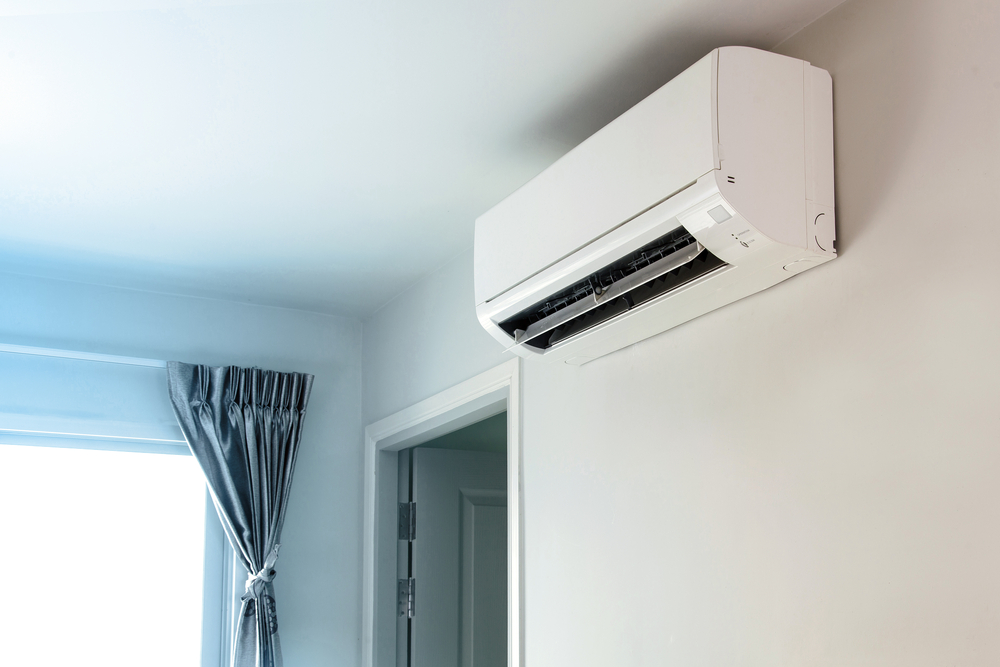
Split System Air Conditioners
Split system air conditioners are the most commonly seen style where there are two parts – one indoors and one outdoors. The wall-mounted system blows out the cooled air while the outdoor unit creates and cools the air that it sends to the wall units.
With a split system, the outdoor unit is often just outside from where the indoor part of the system is located. But there are set-ups where the outdoor unit can be further away, sometimes on the roof of a building. There are also multi-part systems that run more than one indoor unit from a single outdoor one.
What are the advantages of split air conditioners?
Energy efficient
This type of system is much more energy-efficient than a portable system. It does cost more upfront but if you are running it regularly, it will end up being a lot more cost-effective once you have run it for any length of time due to the energy saving.
Greater power
These systems are also much more powerful and that means they can cover a far greater space from even a single wall unit. Plus you can have multiple indoor units running from one base unit outdoors, covering an even greater area.
No floor space needed and very quiet
Because part of the system is outdoors and the other part is wall-mounted, there’s no floor space needed to hold these units. They also run at a much quieter level than portable units so don’t interfere with the operation of the business.
What are the disadvantages of split air conditioners?
More expensive to buy
Split systems are more expensive to buy than portable units and there’s also the need for professional installation to get them running which increases the upfront cost. However, they are still cheaper than some of the other types of air conditioning units and can usually be installed and operational in a single day.
May not be ideal when renting a premises
If you rent rather than own the business premises you are based in, then you may not want to pay out the money to have a split system installed. However, if you have a long term contract or the landlord is willing to come in with costs in some way, it may still work out.
The outdoor unit makes a noise
While the indoor units run with very little noise, there will be noise from the outdoor unit. If you have a property near residential homes, this might be an issue and may be worth checking with the local authority about before installing.
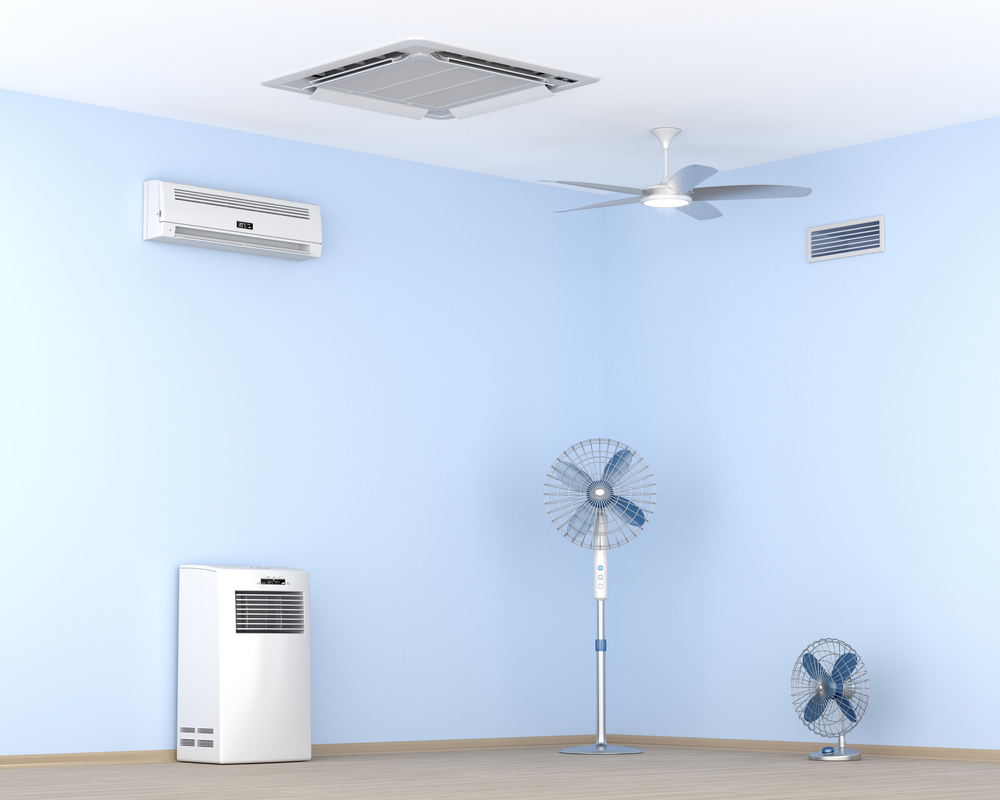
How to decide on which type of AC you need?
Both of these systems have some solid pros and cons so how do you go about deciding which one is best for your business? Here’s a list of the questions we work through with customers to help them decide.
- Is it for residential or commercial use?First, we consider if the property is entirely for commercial use or if there is a residential element – sometimes even if this is a home rather than a business.
- How big is your space?The next consideration is the size of the room and what is in it. If the room is bigger than 20 square metres, then a portable system might not be a good option.
- How much floor space do you have for the AC?Because portable systems require floor space, this is also another good way to help decide. If there’s not much free floor space or the unit would cause an obstruction, then the wall mounted split system could be the best way to go.
- How powerful should the unit be?Air conditioning is measured in BTU or British Thermal Units and this gives you an idea of how much cooling power the system can provide. Also, the more BTUs needed to cool the room, the more expensive the unit will be to run.
- What’s your budget for the AC installation?Residential or commercial, everyone has an idea of how much they want to spend on the air conditioning unit or a figure they don’t want to exceed. By knowing what this is, we can best see what would match with it while giving you the other elements you desire.
- Are you able to vent an air conditioner?Portable air conditioning units need a window or even a door to another area to vent the warm air but if this is a problem, then a wall-mounted system might work better.
- Do you need both cooling and heating features?Some air conditioning systems also offer heating as well as cooling so if you need this from it, that’s important to consider during the decision-making stage.
Professional AC installations by TEK
As you can see, there’s a lot to consider when choosing the right air conditioning unit. That’s why TEK are here to help. As experts in air conditioning installation for residential and commercial properties of all sizes, we can offer that knowledge to help you get the right system for the budget you have. Or we can carry out an assessment of your property to get the best advice.
Contact us today on 01179 523355 or fill in our contact form to get a free quote for the right air conditioning system for your property.


